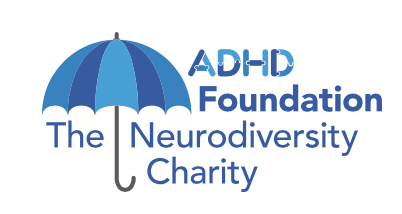What is Neurodiversity?
Neurodiversity is a common term but what exactly does it mean? The term is sometimes used in different ways by different people. It is often used in the context of autism and ADHD.
Neurodiversity refers to the natural differences in the way our brains work. Some people refer to themselves as neurodiverse. However, more commonly the term neurodiversity is used to refer to everyone, including the full range of brain differences. A group of people is made up of both neurodivergent and neurotypical individuals.
Neurotypical is often used to describe people who think, behave and learn in what is seen to be a 'standard' way.
Some people’s brains simply work in a different way. Your child's brain is unique to them. Therefore they will have unique skills, abilities, and needs. They may experience and interact with the world around them in different ways. There is no right or wrong way of thinking, learning and behaving.
Someone who is neurodivergent behaves, thinks and learns differently to those who are neurotypical.
Neurodivergent children may have one or more of the following neurodevelopmental conditions:
- Autism
- ADHD (Attention Deficity Hyperactivity Disorder)
- Tics and Tourette's syndrome
- Dyspraxia
- Dyslexia
What does this mean for my child?
Some aspects of life may be more challenging for both you and your child if they are neurodivergent. Neurodivergence is not an intellectual disability. Some children may thrive at school and others may shine in areas that are not academic.
In an ideal world, access to services and support should be based on your child's needs rather than needing a formal diagnosis.
Remember, the differences aren’t always negative. Your child might need support to thrive but thrive they can!
Your child may:
- Think, learn, feel and process information differently
- Need extra help and support
- Have inconsistent performance at school
- Thrive in the right environment if their strengths are used
What can I do to help my child?
- Discover and celebrate their strengths
- Support your child to be happy and feel confident
- Try to identify when they need extra support
- Speak to your child's nursery, teacher, health visitor or school nurse
- Find different approaches to parenting to help you cope and help your child thrive
Further information
 Autism.org.uk provide advice on diagnosis, education and managing behaviour
Autism.org.uk provide advice on diagnosis, education and managing behaviour
![]() BBC Parent's Toolkit on autism
BBC Parent's Toolkit on autism
 ADHD Foundation has lots of resources and have published a booklet for children with ADHD
ADHD Foundation has lots of resources and have published a booklet for children with ADHD
![]() Visit Leeds Mindmate Neurodiversity Information Hub for neurodivergence information and support for all children, young people and families.
Visit Leeds Mindmate Neurodiversity Information Hub for neurodivergence information and support for all children, young people and families.



